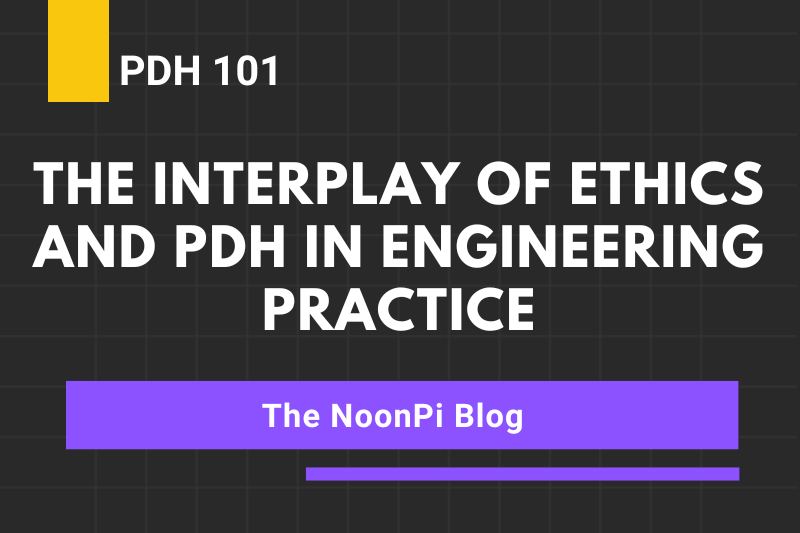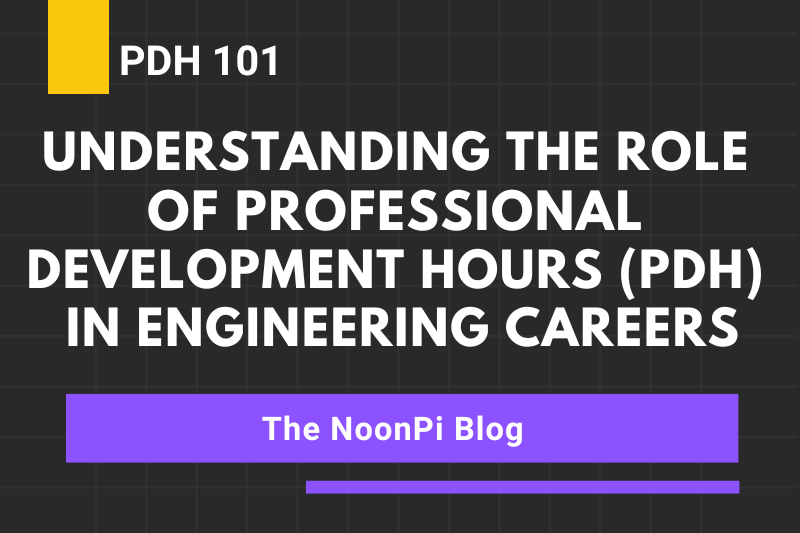Ethics plays a crucial role in engineering, shaping how professionals carry out their duties and interact with society. In the realm of Professional Development Hours (PDH), ethics carries a similar weight, often seen as a key component of an engineer’s continuing education. This article examines the interplay of ethics and PDH in engineering practice, elucidating how ethics-related courses contribute to PDH, and the value they bring in enhancing engineering solutions and fortifying public trust.
Ethics and PDH: The Connection
Professional ethics in engineering involves a set of moral principles that govern engineers’ conduct in their professional practice. It encompasses elements like honesty, integrity, accountability, and the prioritization of public safety. Similar to technical skills, ethical decision-making skills need nurturing and development over time, and this is where PDH comes into play.
Many licensing boards require engineers to obtain a certain number of PDH in ethics as part of their license renewal process. These requirements acknowledge that being an effective engineer is not only about technical prowess, but also about understanding and applying ethical principles in everyday practice.
The Role of Ethics-Related Courses in PDH
Courses that focus on engineering ethics can greatly contribute to an engineer’s PDH. These courses often cover a broad range of topics such as understanding the engineer’s responsibility to public safety, the environmental impact of engineering decisions, ethical dilemmas in engineering practice, and navigating conflicts of interest.
Such courses do more than fulfill PDH requirements. They provide engineers with a framework to analyze complex situations, make sound decisions, and act with integrity, even in challenging circumstances. They also help engineers stay updated on any changes in professional ethics codes and understand their implications.
Impacts on Engineering Practice and Public Trust
The knowledge gained from ethics-related PDH courses has far-reaching impacts on engineering practice. Ethical decision-making skills help engineers deliver solutions that prioritize public safety, welfare, and sustainability. They enhance the quality of work by fostering honesty, transparency, and fairness in all professional interactions. In this way, engineers not only produce technically sound solutions but also ones that are socially responsible and environmentally conscious.
Furthermore, the application of ethical principles strengthens public trust in the engineering profession. When engineers consistently act ethically, they demonstrate their commitment to the greater good, fostering a positive image of the profession. This trust becomes especially critical in times of crisis or uncertainty when the public relies on engineers to provide reliable, safe solutions.
Final Thoughts
The relationship between ethics and PDH is a vital one, emphasizing that continuous learning in engineering extends beyond technical updates to include ethical considerations. By incorporating ethics-related courses into their PDH, engineers can strengthen their moral compass, make responsible decisions, and contribute positively to society. In the end, the marriage of ethics and PDH underscores the fact that at the heart of engineering lies a profound responsibility to act in the best interests of the public.









Leave A Comment